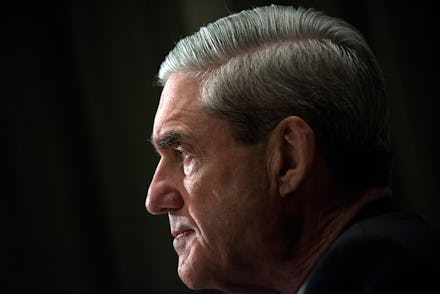Robert Mueller: Here's what to know about the man investigating Trump

On Wednesday evening, the Justice department announced it had named ex-FBI director Robert Mueller as special counsel to investigate Russian meddling in the 2016 presidential election.
The pick excited Democrats. Deputy Attorney General Rod Rosenstein said the Justice department did "the right thing" with what Senate Minority Leader Chuck Schumer called the "very much needed" naming of a special counsel, according to the Los Angeles Times. Republicans, meanwhile, were less enthused. "I just don't think there is any need for it," Rep. Peter King, a New York Republican and early Trump backer, told the Times.
But analysts on both sides of the aisle praised Mueller as a principled public servant.
"The best I ever saw"
"He is not one of the best, Robert Mueller, he is the best I ever saw. Leadership, judgment, decision-making," Philip Mudd, former deputy director of the FBI's national security branch under Mueller, told CNN. "There is nobody better at doggedly pursuing a target without being subjected to any pressures from Congress, the President, the media, anybody in the FBI, the attorney general, the deputy attorney general. There is nobody better."
And the New York Times called Mueller "a former federal prosecutor with an unblemished reputation."
Mueller was nominated for FBI director by President George W. Bush. He took over the reins of the Bureau just seven days before Sept. 11, 2001. "I had been a prosecutor before, so I anticipated spending time on public corruption cases and narcotics cases and bank robberies and the like, and Sept. 11 changed all of that," Mueller told NPR in 2013.
The terrorist attacks would galvanize some of the most sweeping changes the Bureau had experienced since its creation in 1908. Under Mueller's tenure, the FBI switched gears from chasing conventional criminals to trying to prevent the next major terrorist attack.
"He directed and implemented what is arguably the most significant change in the FBI's 105-year history," John Pistole, a former deputy director of the FBI under Mueller, also told NPR.
Mueller remained the nation's top law enforcement official for 12 years. Normally, FBI directors serve 10 years, but in 2011 President Barack Obama asked Congress to extend Mueller's tenure by two years, given leadership changes at other national security agencies, including the Central Intelligence Agency and Defense department. Congress agreed, passing legislation to extend Mueller's term.
Comey, Mueller and John Ashcroft
Mueller is perhaps best known for his role in the reauthorization of the Bush administration's warrantless wiretapping program. In 2004, the program came up for reauthorization when Attorney General John Ashcroft was hospitalized with acute pancreatitis. James Comey, then acting attorney general, refused to reauthorize the program due to "deep concerns about its legality," according to Frontline. When Comey refused, Bush's White House counsel, Alberto Gonzales, and his chief of staff, Andrew Card, rushed to Ashcroft's bedside to try to get him to sign the papers reauthorizing the program. Comey, with Mueller in tow, rushed to stop them. Mueller's notes on the dramatic bedside confrontation would later be used to corroborate Comey's version of the events in testimony before Congress. The program, according to Comey, was later reauthorized without Justice department approval.
Before joining the Bureau, Mueller served 12 years in the United States Attorney's offices, first in San Francisco, then in Boston, according to his official FBI biography. He is also a decorated Vietnam veteran.